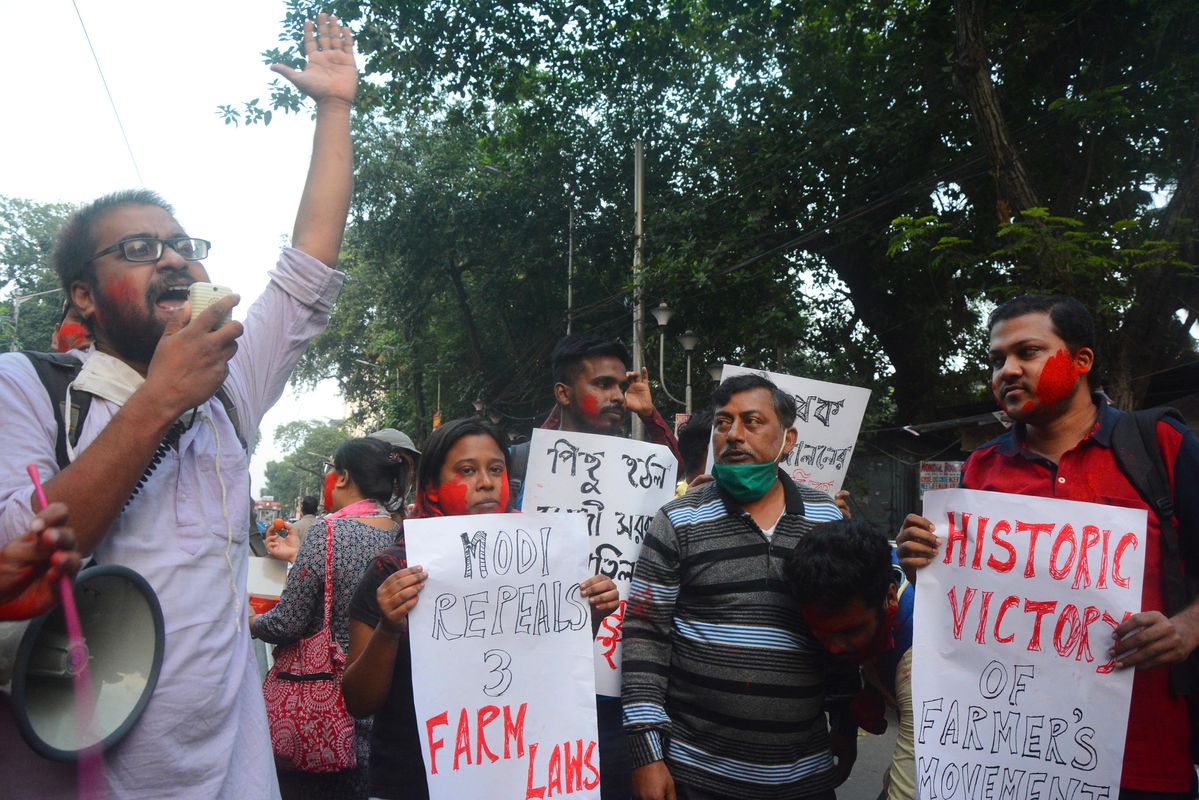Modi plays politics with farmers. The Indian government's recent climbdown on three agricultural laws was a rare concession from Modi, a popular, strong-willed nationalist who came to power in 2014 and has refused to back down on contentious and oft-criticized policy issues – like decimating India's cash money supply, revoking Kashmir's autonomous status, or amending the country's citizenship laws to effectively exclude Muslims. Now, farmers unions seem to smell blood in the water. While many are indeed thrilled that Modi has done away with the farming reforms, which would no longer have guaranteed minimum prices for crops, giving more power to big business, many see this concession as a shrewd political move. Early next year elections will be held in Uttar Pradesh, India's most populous state and an agricultural stronghold which traditionally backs Modi's Bharatiya Janata Party. But the BJP has lost support there in recent months because of the agricultural laws. Still, Modi hasn't won over farmers just yet: farm unions want the government to write certain "minimum support prices" into law, and to expand the number of crops that are given these government price protections. But a law like that won't be popular with powerful agriculture corporations. Will Modi do it anyway?
VIDEOSGZERO World with Ian BremmerQuick TakePUPPET REGIMEIan ExplainsGZERO ReportsAsk IanGlobal Stage
Site Navigation
Search
Human content,
AI powered search.
Latest Stories
Sign up for GZERO Daily.
Get our latest updates and insights delivered to your inbox.
Global Stage: Live from Davos
WATCH
Latest Videos
Related
Sponsored posts
Five forces that shaped 2025
What's Good Wednesdays
What’s Good Wednesdays™, January 28, 2026
Walmart sponsored posts
Walmart’s commitment to US-made products
More For You
Most Popular
Load More
GZERO Daily: our free newsletter about global politics
Keep up with what’s going on around the world - and why it matters.


















